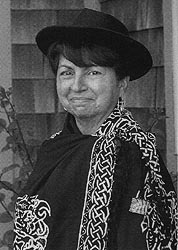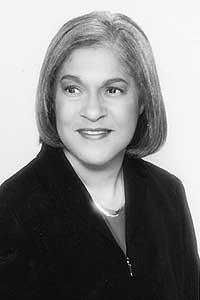
Multicultural and Post-Colonial Feminism

Multicultural feminism takes an interdisciplinary, cross-cultural approach to the study of women from diverse racial, ethnic, sexual and class backgrounds. The focus is on the ways in which race, class, and gender intersect in women’s lives and to examine critically representations of women in American culture .
Postcolonial feminism often criticizes Western forms of feminism, notably radical feminism and its universalization of female experience. Many postcolonial feminists argue that oppressions relating to the colonial experience, particularly racial, class, and ethnic oppressions, have marginalized women in postcolonial societies. They challenge the assumption that gender oppression is the primary force of patriarchy. Also, they argue that oppressions cannot be ranked at all, as to do so would be to misrepresent their lived experiences. While challenging gender oppression within their own culture, postcolonial feminists also fight charges of being Western as some within their cultures would contend. (Source: Wikipedia)
From the early 1980s onward, postcolonial feminism in the West has been centrally concerned with the terms in which knowledge about non-Western women was produced, circulated, and utilized.
Global Feminism
 Gloria Evangelina Anzaldúa (1942-2004)
was a chicana, lesbian-feminist, poet, writer, and
cultural theorist and activist. Anzaldúa was raised in the South Texas. She died in 2004 due to complications from
diabetes.
Gloria Anzaldua helped make visible the
literature of women of color in the USA. Anzaldúa was born September 26,
1942 in Jesus Maria of the Valley, Texas, in a family of Mexican immigrants. She
graduated from college as the only one from her neighborhood and started her
work as teacher of children from migrant families.
Gloria Evangelina Anzaldúa (1942-2004)
was a chicana, lesbian-feminist, poet, writer, and
cultural theorist and activist. Anzaldúa was raised in the South Texas. She died in 2004 due to complications from
diabetes.
Gloria Anzaldua helped make visible the
literature of women of color in the USA. Anzaldúa was born September 26,
1942 in Jesus Maria of the Valley, Texas, in a family of Mexican immigrants. She
graduated from college as the only one from her neighborhood and started her
work as teacher of children from migrant families.
Her book Borderlands/La Frontera: The New Mestiza (Spinsters/Aunt Lute, 1987), which combines Spanish and English poetry, memoir, and historical analysis, was chosen as one of the 38 Best Books of 1987 by the Literary Journal. In addition to winning an NEA Fiction Award, Ms. Anzaldua was awarded the 1991 Lesbian Rights Award and the Sappho Award of Distinction in 1992.
To live in the borderlands means you
are neither hispana india negra española
ni gabacha, eres mestiza, mulata, half-breed
caught in the crossfire between camps while carrying all five races
on your back
not knowing which side to turn to, run from;
To live in the Borderlands means knowing
that the indian in you, betrayed for 500 years,
is no longer speaking to you,
that mexicanas call you rajetas,
that denying the Anglo inside you
is as bad as having denied the Indian or Black;
Cuando vives en la frontera
people walk through you, wind steals your voice,
you're a burra, buey, scapegoat
forerunner of a new race,
half and half - both woman and man, neither-
a new gender;
To live in the Borderlands means to
put chile in the borscht
eat whole wheat tortillas
speak Tex-Mex with a Brooklyn accent;
be stopped by la migra at the border check points;
Living in the Borderlands means you fight hard
to
resist the gold elixir beckoning from the bottle,
the pull of the gun barrel,
the rope crushing the hollow of your throat;
In the Borderlands
you are the battleground
where enemies are kin to each other;
you are at home, a stranger,
the border disputes have been settled
the volley of shots have shattered the truce
you are wounded, lost in action
dead, fighting back;
To live in the Borderlands means
the mill with the razor white teeth wants to shred off
your olive-red skin, crush out the kernel, your heart
pound you pinch you roll you out
smelling like white bread but dead;
To survive in the Borderlands
you must live sin fronteras
be a crossroads
Excerpt from Making Soul, Making Faces (handout provided)
 Patricia Hill Collins received her BA and PhD degrees from Brandeis University and an MAT degree from
Harvard University. While her specialties in sociology include such diverse
areas as sociology of knowledge, organizational theory, social stratification
and work and occupations, her research and scholarship have dealt primarily with
issues of gender, race and social class, specifically relating to African
American women. She is also a member of the Women's Studies Program. She has
published many articles in professional journals and edited volumes. Her first
book, Black Feminist Thought: Knowledge, Consciousness and the Politics of
Empowerment, published in 1990, has won many awards. Her second book,
Race, Class and Gender: An Anthology (edited with Margaret Andersen),
originally published in 1992 with a second edition in 1995, is widely used in
undergraduate classrooms throughout the United States. Professor Collins has
taught at several institutions, held editorial positions with professional
journals, lectured widely in the United States, served in many capacities in
professional organizations and has acted as consultant for a number of
businesses and community organizations. She is currently completing her third
book, tentatively titled Fighting Words, to be published by the
University of Minnesota Press. In recognition of her numerous accomplishments,
Professor Hill Collins had been named a Charles Phelps Taft Professor, the first
female in UC history to hold this title.
Patricia Hill Collins received her BA and PhD degrees from Brandeis University and an MAT degree from
Harvard University. While her specialties in sociology include such diverse
areas as sociology of knowledge, organizational theory, social stratification
and work and occupations, her research and scholarship have dealt primarily with
issues of gender, race and social class, specifically relating to African
American women. She is also a member of the Women's Studies Program. She has
published many articles in professional journals and edited volumes. Her first
book, Black Feminist Thought: Knowledge, Consciousness and the Politics of
Empowerment, published in 1990, has won many awards. Her second book,
Race, Class and Gender: An Anthology (edited with Margaret Andersen),
originally published in 1992 with a second edition in 1995, is widely used in
undergraduate classrooms throughout the United States. Professor Collins has
taught at several institutions, held editorial positions with professional
journals, lectured widely in the United States, served in many capacities in
professional organizations and has acted as consultant for a number of
businesses and community organizations. She is currently completing her third
book, tentatively titled Fighting Words, to be published by the
University of Minnesota Press. In recognition of her numerous accomplishments,
Professor Hill Collins had been named a Charles Phelps Taft Professor, the first
female in UC history to hold this title.
"Defining Black Feminist Thought" (1990) (handout provided)
Black Feminist Thought in the Matrix of Domination
From Patricia Hill Collins’s book, Black Feminist Thought: Knowledge, Consciousness, and the Politics of Empowerment (1990). The existence of Afrocentric feminist thought suggests that there is always choice, and power to act. Viewing the world as one in the making raises the issue of individual responsibility for bringing about change.
 Judith Butler's book Gender Trouble sold over 100,000 copies, making Butler a star in the
world of theory, and breaking ground for what later came to be known as
queer
theory. One of Butler's most significant contributions to critical theory is
her performative model of
gender,
in which the categories "male" and "female" are understood as a repetition of
acts instead of natural or inevitable absolutes. Butler also argued that the
feminist
movement cannot use or rely on a specific immutable definition of woman,
and that to do so is
imperialistic and counterproductive in that it perpetuates
sexism. She
also examines the ways that race, gender, sexual orientation, and other
identities conflict and support each other.
Judith Butler's book Gender Trouble sold over 100,000 copies, making Butler a star in the
world of theory, and breaking ground for what later came to be known as
queer
theory. One of Butler's most significant contributions to critical theory is
her performative model of
gender,
in which the categories "male" and "female" are understood as a repetition of
acts instead of natural or inevitable absolutes. Butler also argued that the
feminist
movement cannot use or rely on a specific immutable definition of woman,
and that to do so is
imperialistic and counterproductive in that it perpetuates
sexism. She
also examines the ways that race, gender, sexual orientation, and other
identities conflict and support each other.
Interview (1993) of Judith Butler
Resources: